Roast dinner tips fresh from the Oxfordshire kitchen of Raymond Blanc
The highlight of any Brit's weekend; a Sunday roast is simple yet wondrously appreciated. The Raymond Blanc Cookery School at Le Manoir aux Quat'Saisons teach a wealth of transferable knowledge in their hands-on courses; Alexandra Fraser shares those she found the most useful after attending one such lesson.

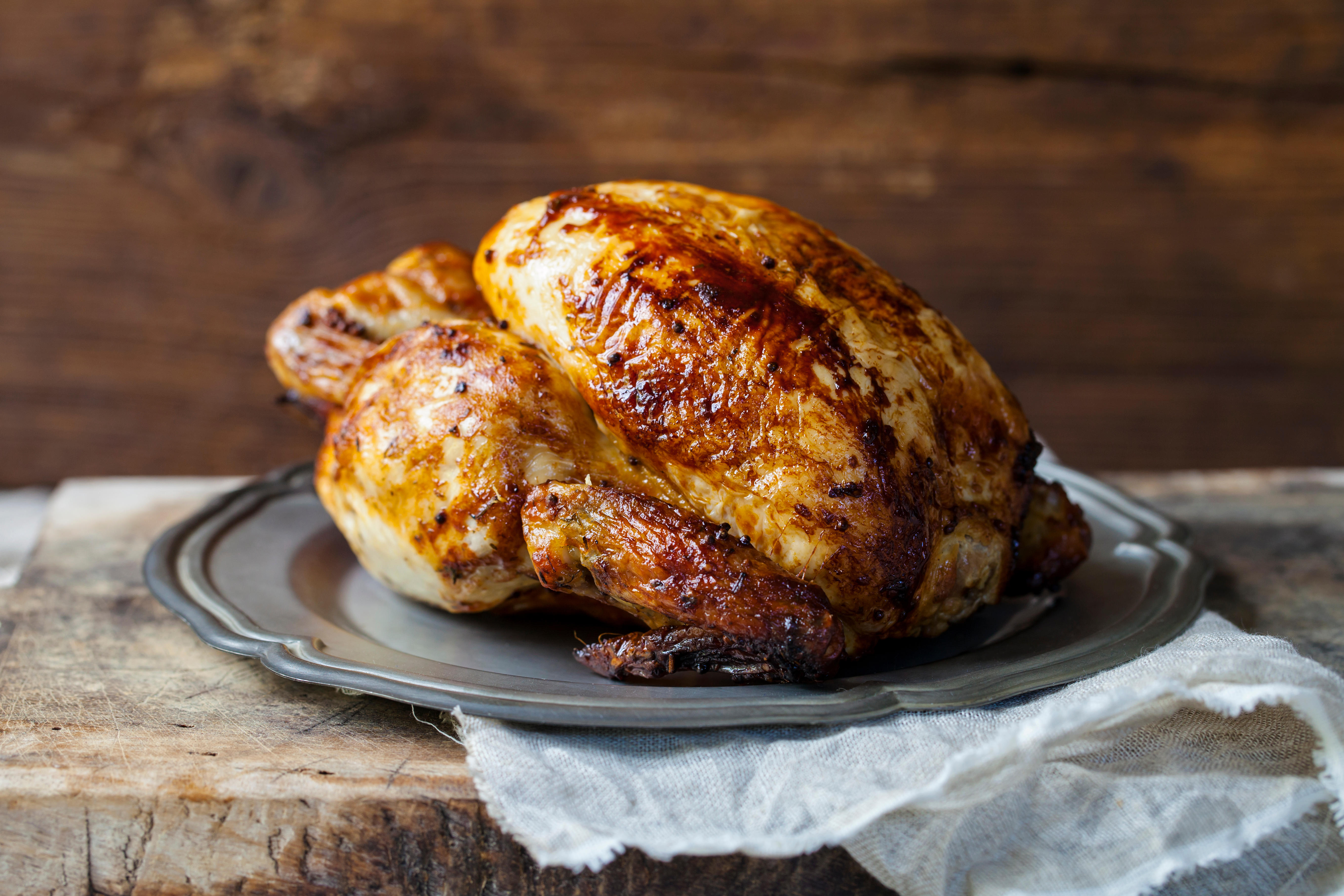
A weekly British staple for a reason, roasts are universally beloved and deceptively simple; after all, almost anyone can bung a chicken in a roasting dish and turn a dial with reasonable success. However, every veteran roaster knows that it's the string of little tips and tricks which make that chicken more succulent, those potatoes more crispy and those parsnips more edible (I apologise, I'm just not a fan).

Every individual has their own methods and often the little variations are what cause the most contention when two chefs are forced to work together (think family gathering with two good cooks and one small kitchen).
In our house said contention lies with the potatoes (my crowning glory and the most important guest at the Sunday roast party); my sister’s method is more traditional and simplistic whereas I round mine with flour. She’s wrong, obviously, but her bread sauce far surpasses my own in the fact that she often remembers to make it, so she can be forgiven for this one oversight.
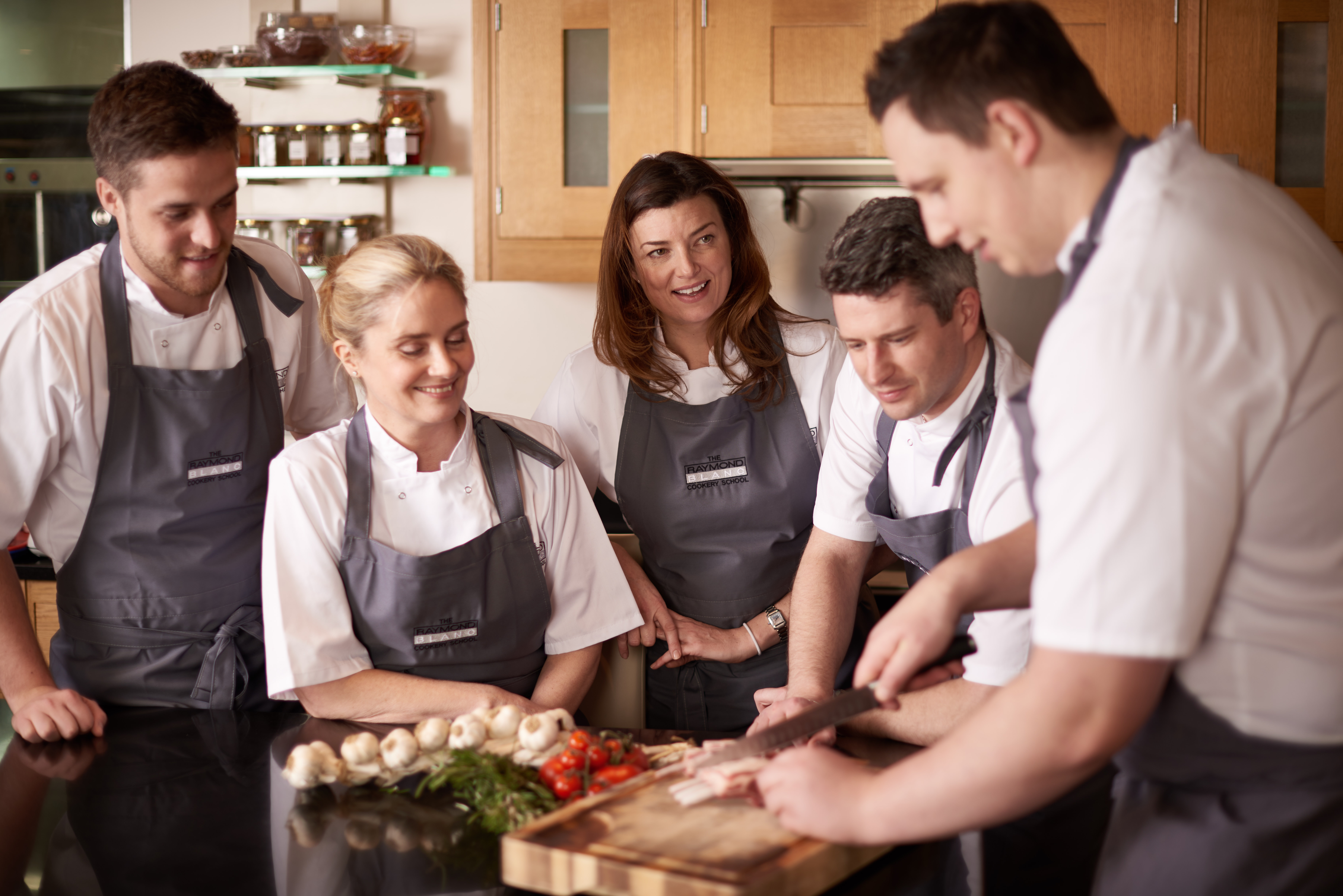
The cookery school at Le Manoir de Quat'Saisons is a haven for comfortable cooking. Laid out like an interactive dinner party, one eats everything they cook as well as sampling the various dishes whipped up by the excellent teaching staff. While attending one of their Christmas Dinner Party day courses (a must-do if you too are shackled with the joyous task of sweating away in a hot kitchen while everyone else lolls on the sofa asking ‘is it ready yet?’) I picked up a selection of top tips which have served me well for every subsequent roast I have cooked this year.
Top tips for cooking chicken:
The quality of your bird is key and will likely determine the success of your roast. It may seem obvious but if you're defrosting a bird (particularly in the case of a rather large turkey), ensure it is thoroughly defrosted before you begin.
Allow your bird to come to room temperature for an hour before cooking.
Remove the wishbone. It makes the bird infinitely easier to carve. Have your butcher do it for you or, if you buy your chicken from the supermarket, watch this tutorial here.
Exquisite houses, the beauty of Nature, and how to get the most from your life, straight to your inbox.
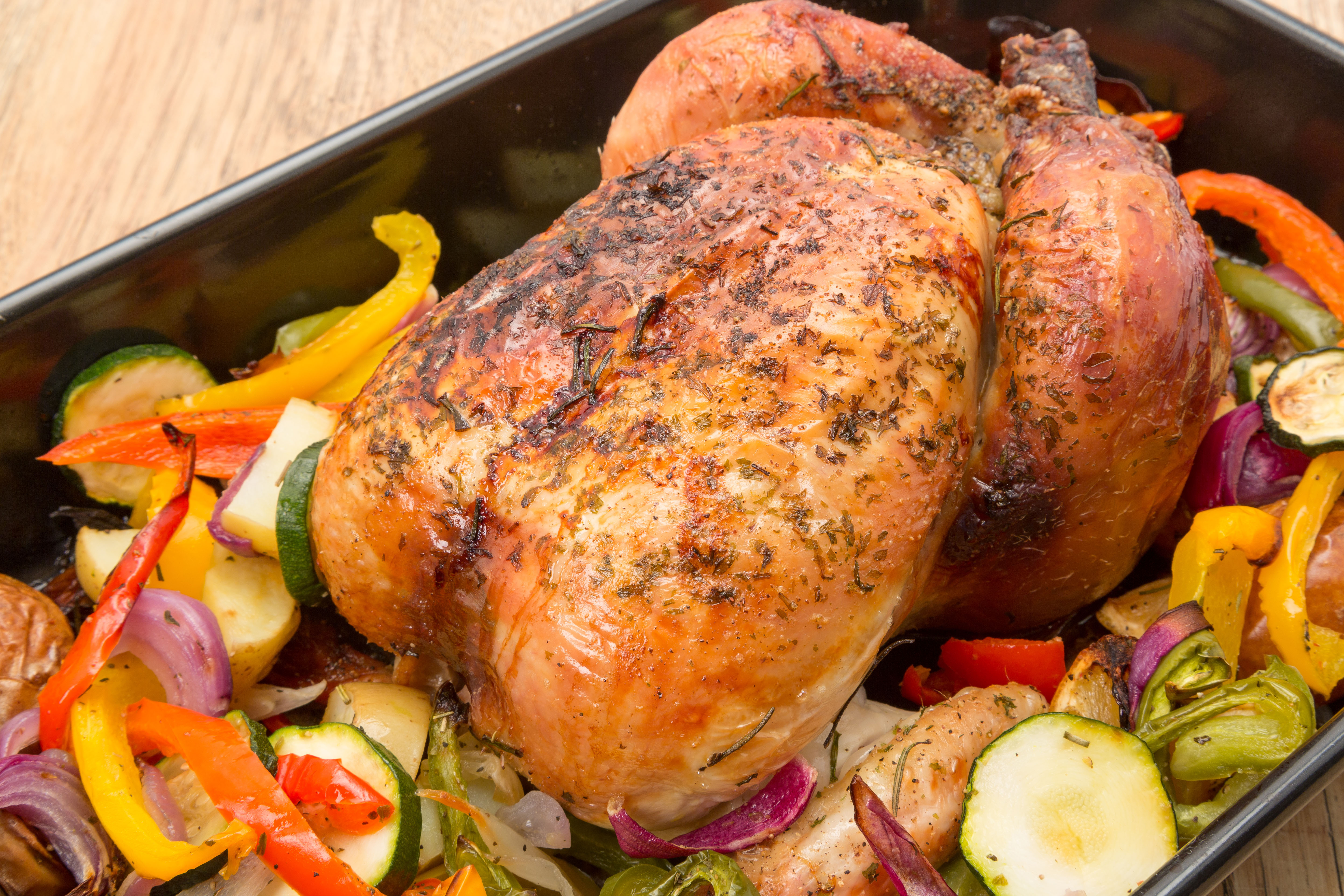
If you are buying your bird from the butcher, ask him to remove and chop the wings and neck into small pieces to use as a trivet – if you prefer to leave your bird intact, you can make a vegetable trivet instead or buy some wings from the shop. The benefit of the wing trivet is it aids in the making of gravy and let's heat move around the whole bird - the wings also make a delicious snack.
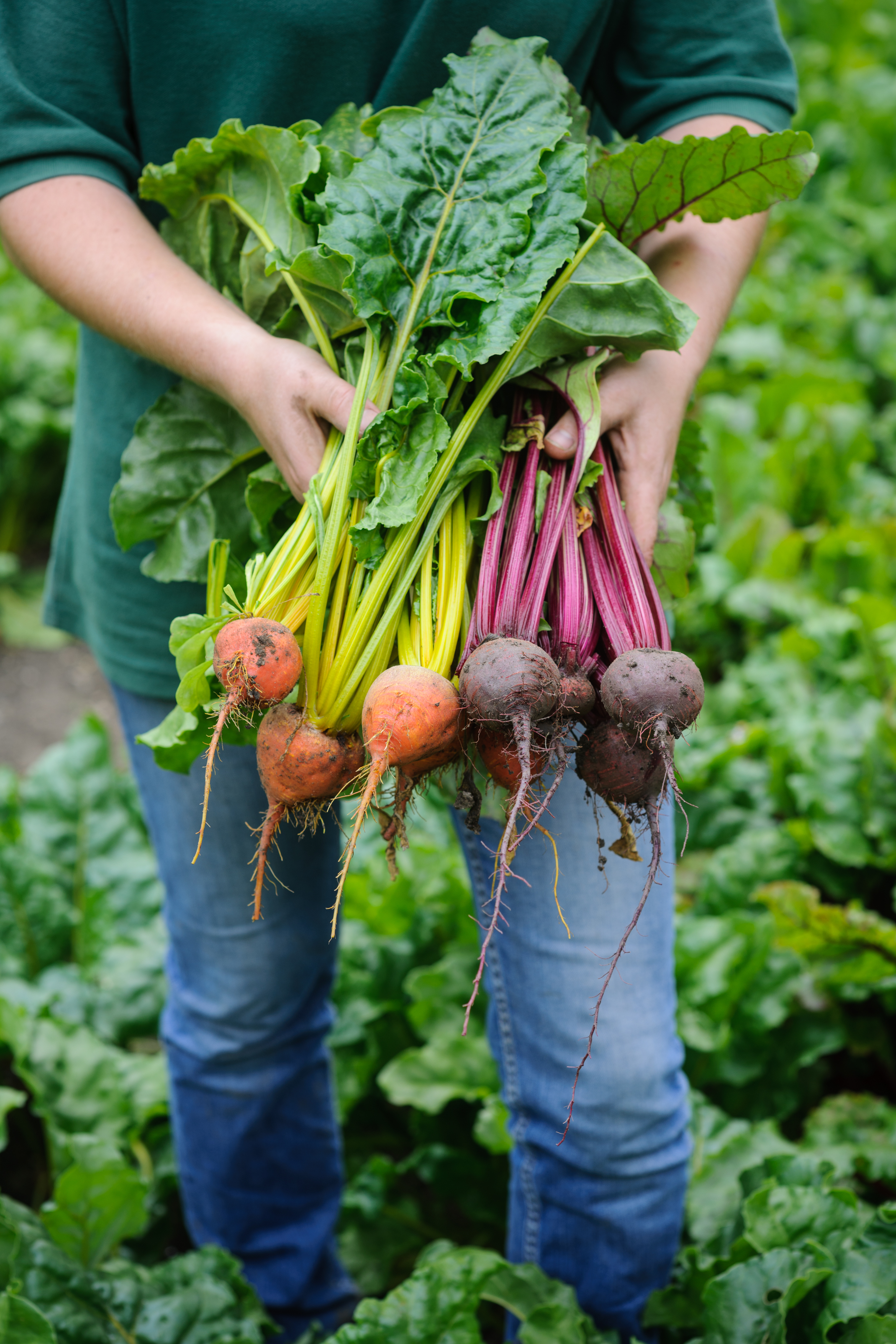
The most insistent tip given by Raymond through his cookery school’s head chef Michael John is to rest your bird for at least as long as you cook it for.
Cook your chicken on high for 20 minutes, a middle temperature for 20-25 further minutes and then remove from the oven and place in a warm spot for at least another 40 minutes. This allows the meat to stay tender and the juices to be distributed evenly throughout the bird. Do not fear for your bird catching a cold; it will still be warm when you serve it in an hour, even if only covered loosely with tin foil.
Use the time you save to prep your vegetable and bring the roasting juices to boil and simmer with the wings and neck for 20 minutes before making your gravy.
Top tips for cooking roast potatoes:
Do not use a light hand when salting your water. Raymond recommends at least 50g to season the potatoes early in the game - remember, a chef's pinch is three fingers and rather more of a throw.
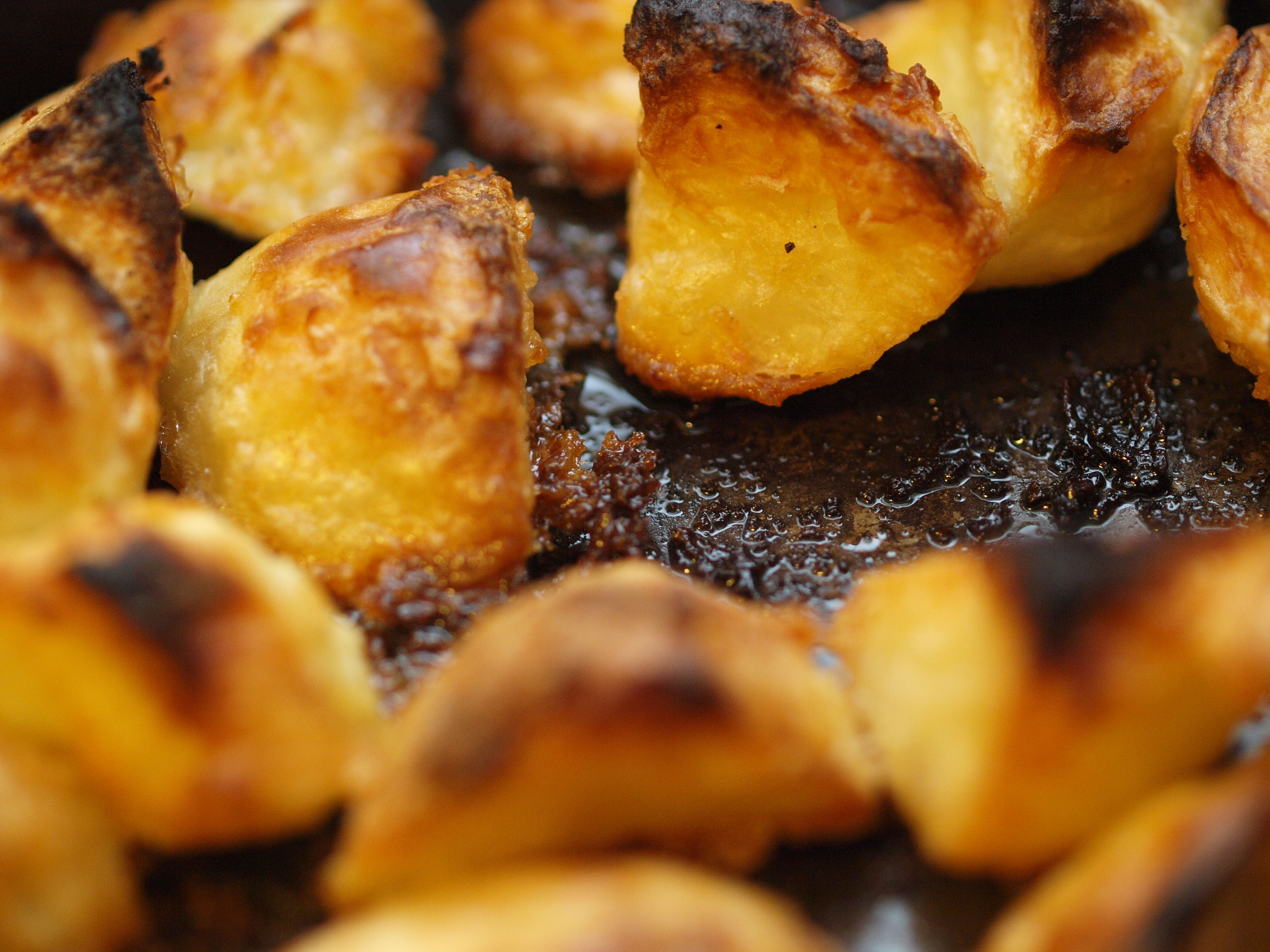
Le Manoir recommend using Lincolnshires for a fluffy and light roast potato. Make sure you ruffle your potatoes before putting them in the oil by shaking them in a collider first – this creates ridges which will crisp up in the oven.
Use goose fat, not vegetable oil, and remember to preheat it to 200 degrees before you add your potatoes so that they begin to crisp up instantly.
Add a few sprigs of rosemary and thyme and a few cloves of garlic in the last five minutes of cooking to lightly season your golden beauties.
Tips for cooking vegetables:
Panfried parsnips (and brussel sprouts, if you're feeling Christmassy) are quick, easy and delicious. Put a large amount of butter in a pan and ensure it is foaming before adding your vegetables. Season with salt and pepper, lightly colour and then transfer to the oven for 8-10 minutes. Add honey and a little lemon to serve.
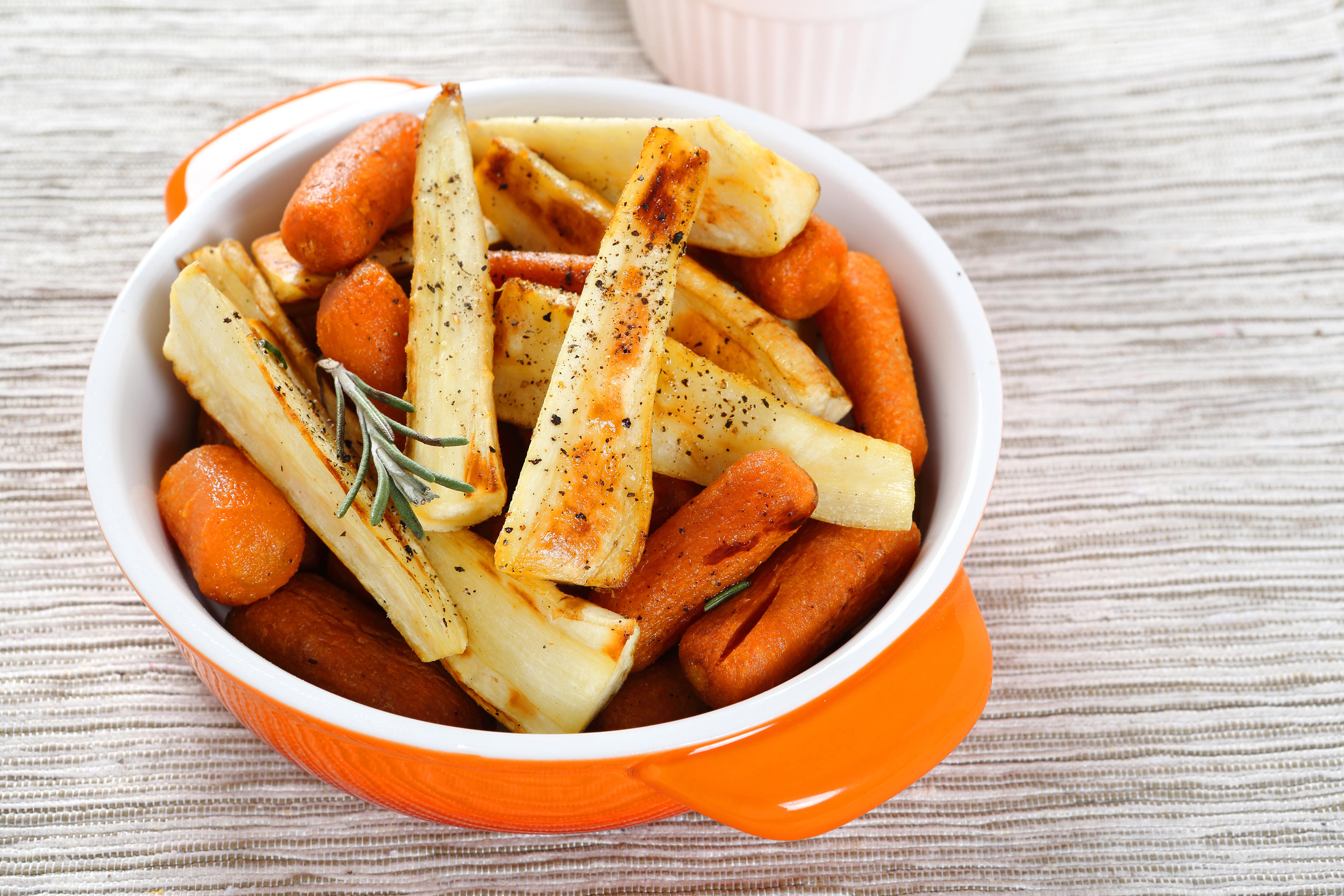
Tips for cooking stuffing:
Do not stuff your bird. Instead, roll your chosen stuffing up in a sausage of tinfoil by rolling then twisting the ends until it is tight and compact. Cook on 180 degree for half an hour and slice to serve. I must confess, I still stuff my chicken out of pure habit, but this method allows heat to circulate through your meat and is much more attractive on a plate. If your chicken is feeling empty, stuff it with half a lemon and a few sprigs of thyme.
You can make your stuffing the day before and leave it in the fridge until it's time to cook.

